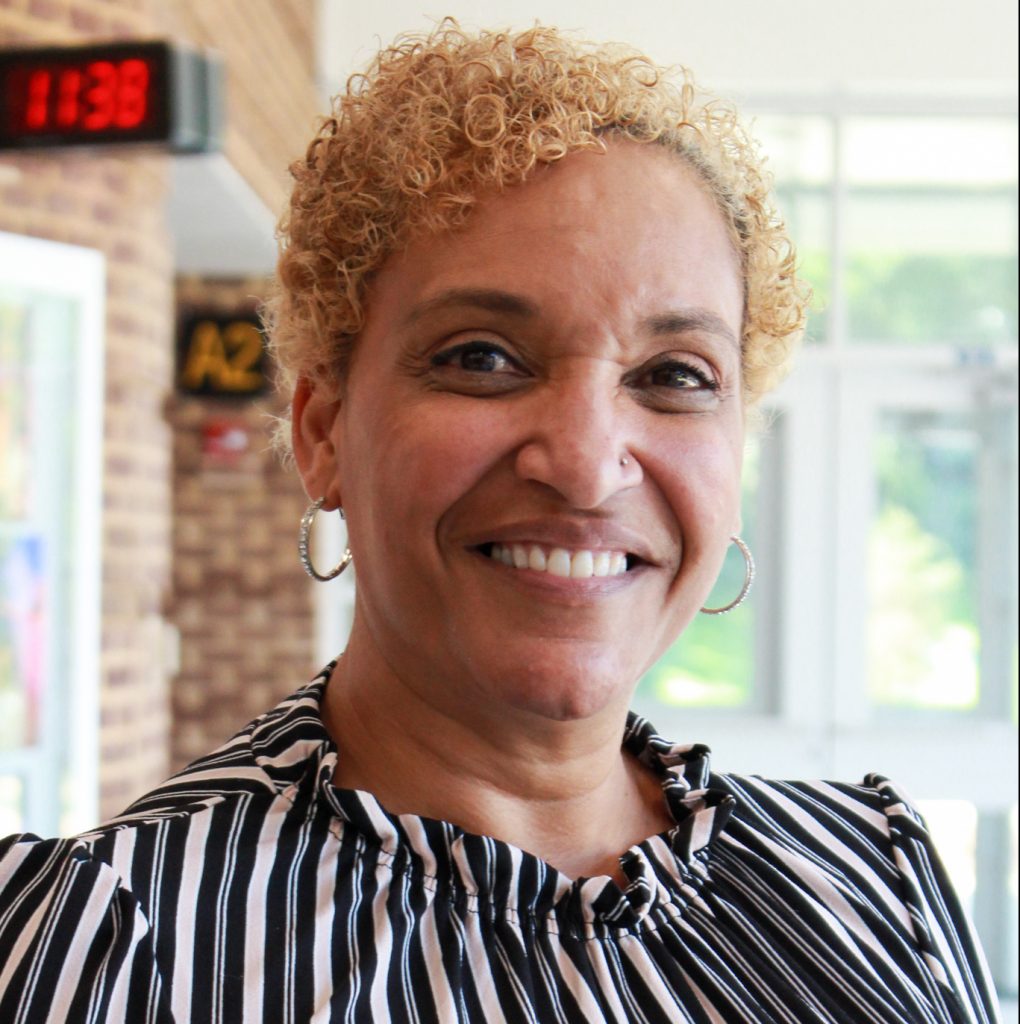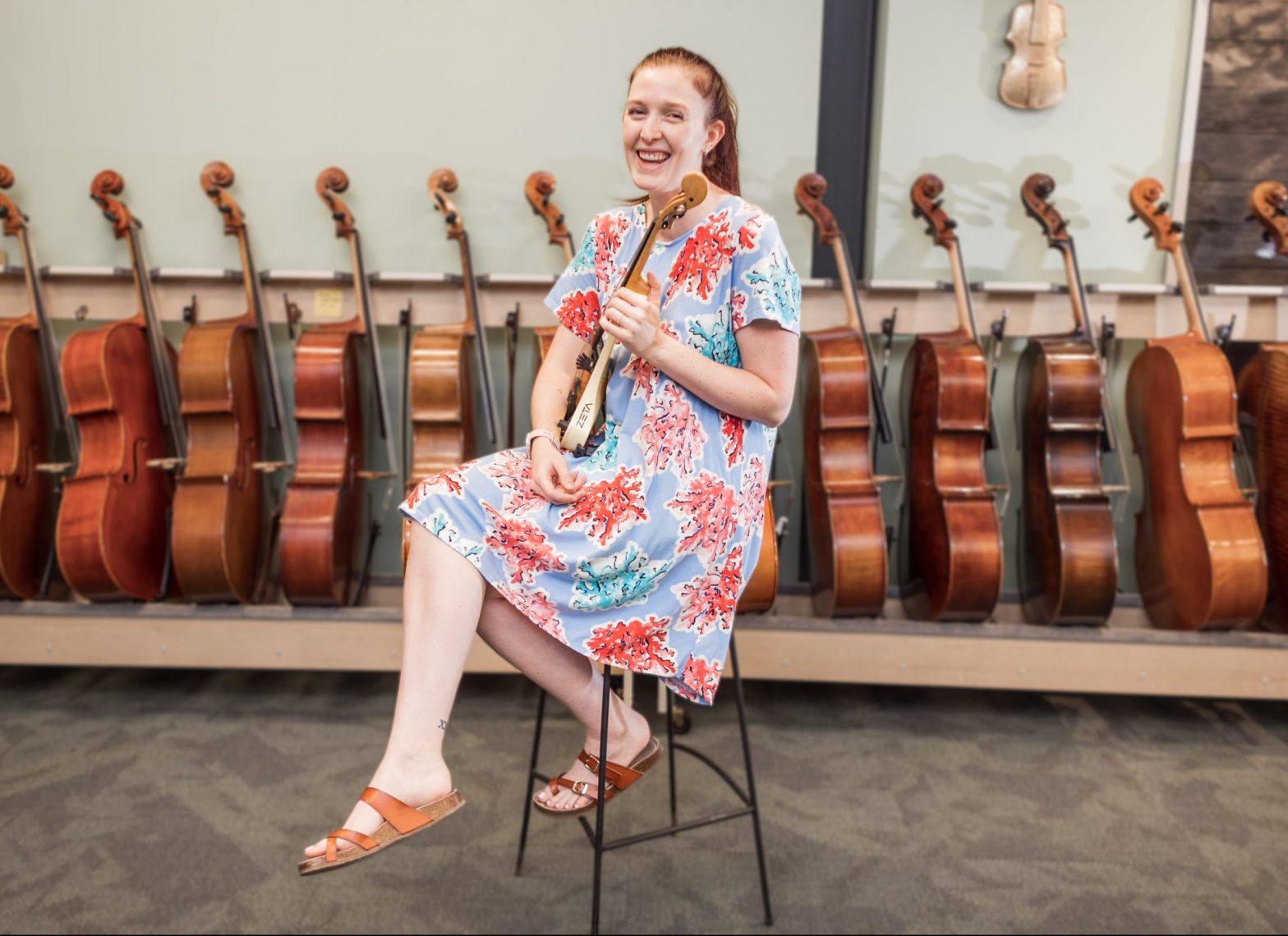By Richard DiCicco, Carol Diggs, Brielle Entzminger, and Maeve Hayden
It’s the most wonderful time of the year: freshly sharpened No. 2 pencils, big boxes of crayons, and all the gel pens (erasable ones, please!). And we’re happy to report that schools in the city and county will look pretty much like they did pre-pandemic. Well, sort of. Charlottesville High has a new principal and orchestra director, while the county has a new director of equity, family, and community relations (hint: it’s the former CHS principal). Albemarle County has implemented antiracism and transgender support programs, and Chris Long’s EdZone was created to make sure city students have everything they need to hit the ground running when the first bell rings. And finally, three local students let us know what they’re looking forward to this year. So fasten your backpacks—we’re hoping for a less-bumpy ride in 2022!
CHS orchestra director takes the baton from her mother
Life is coming full circle for Emily Waters, the new director of the Charlottesville High School orchestra. A CHS orchestra program graduate herself, Waters is taking over from her mother, Laura Thomas, who retired after 40 years with the award-winning orchestra. After three years of directing and teaching in Virginia Beach, Waters, who has degrees from VCU and JMU, returned home to Charlottesville in 2018 to direct the Walker Upper Elementary School orchestra. Teaching at the high school is a dream that’s been long in the making.
“When I came to Charlottesville to teach at Walker, it was my hope that I could move to the high school when my mom retired, so I’ve been planning this for a while,” says Waters. “I’ve been dreaming up all the things that we could do with the amazing support of the community and school system. With how the arts are valued in this community, the possibilities are really endless.”
Full of excitement and a healthy dose of nerves, Waters is looking forward to continuing her mother’s legacy, while also doing things a little differently. At Walker, Waters was known for blending strings with hip-hop beats in her classes and on her TikTok account, @thestringqueen, where she duets and accompanies modern beats with her violin.
“I started [TikTok] during the pandemic when I was looking for a way to connect with students,” Waters says. “It’s about using the instrument created hundreds of years ago to play the music we like today. I love to model that for my students.”
Making music more accessible for everyone is a huge part of Waters’ mission as a teacher. “I think it’s important for there not to be a bold line between the music that’s taught in school and the music that kids listen to outside of school,” she says. “The more students see that the music they love is valued in school, the more ownership they’ll take over what they’re learning.”
In addition to incorporating more genres of popular music into learning, Waters will teach a music appreciation class with a focus on music production. She also hopes to introduce electric instruments, and involve a variety of guest artists through masterclasses.
Keep up to date with the CHS orchestra at @blackknightorchestra on Instagram and chsorchestra.org.—M.H.
What are you most looking forward to this school year?’
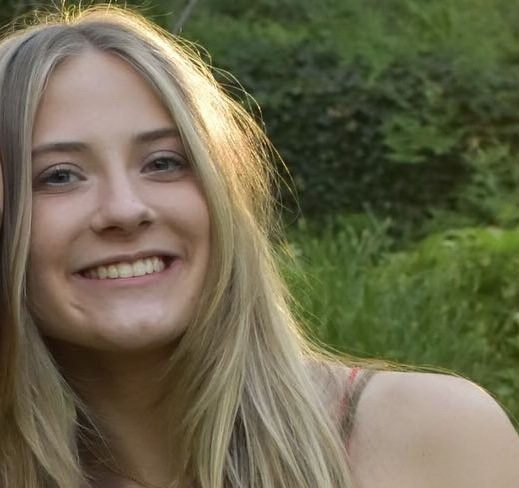
“I’m definitely looking forward to the social aspects of senior year and being able to see my friends and go to football games,
and cherish all the special moments that we’ll be having for the last time since it’s gonna be my senior year.”
—Sarah, Charlottesville High School senior
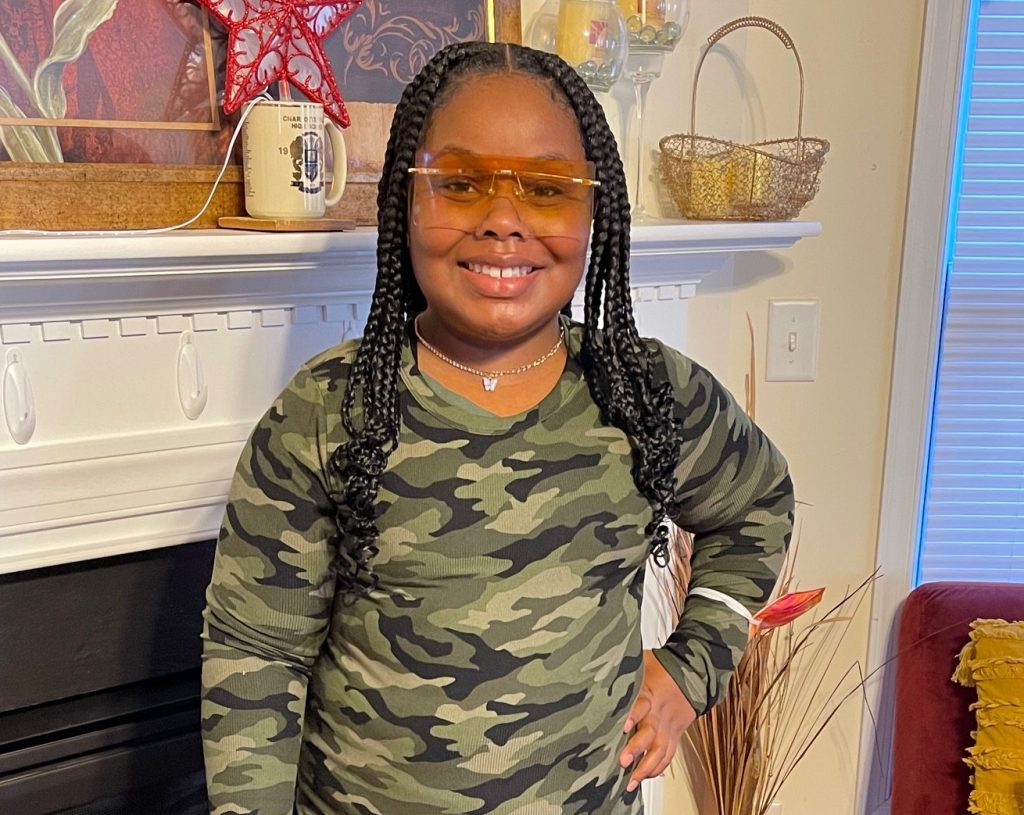
“Getting good grades in gym.”
—Kaylan, Walton Middle School seventh grader

“Meeting friends and playing.”
—Levi, Hollymead Elementary school kindergartener
Charlottesville High welcomes new principal
Earlier this month, Charlottesville High School welcomed Rashaad Pitt as its new principal, following Eric Irizarry’s move to a new job with Albemarle County Public Schools. With nearly two decades of experience in education, Pitt most recently served as assistant principal at George Wythe High School in Richmond.
After graduating from Virginia State University in 2006, Pitt was inspired to become an educator by Virginia Berry, then-principal of Peabody Middle School (which Pitt attended)—and the mother of one of his football teammates. He began his career as a history teacher in Petersburg City Public Schools, and went on to serve as a teacher, middle school success coordinator, high school dean of students, and career academy principal for a number of school districts, including Chesterfield County Public Schools and Hampton City Schools.
As CHS principal, Pitt hopes to build strong relationships with students, parents, and the community at large, drawing from his expertise in restorative justice, community outreach, professional development, and instructional leadership. Pitt has already begun making introductory calls to families, “so that parents have a sense of the expectations [and] feel like there’s a means of support in the classroom,” he says.
“All the curriculum and pedagogy is great, but if I want to have a relationship with that student, and I don’t understand their learning style, there could be a potential barrier there,” he says. “If I know what the triggers are for my students, how I can best teach them, and check in with them daily with a morning greeting at the door, and do some informal check-ins … [that] creates a more welcoming and warm environment in the classroom, which opens up opportunities for learning.”
Using the “wealth of resources” already available at CHS, Pitt also aims to continue the school’s support and wraparound services, like counseling and case management, and increase student engagement across all grades. “If students see themselves within the curriculum and see that they have a voice in their education, it promotes more buy-in in the classroom,” he says.
Pitt received a master’s degree in education from Walden University, and a master’s degree in educational leadership from Regent University. He is a contributing author for volume 2 of Next in Line to Lead: The Voice of the Assistant Principal, and is the father of three children.—B.E.
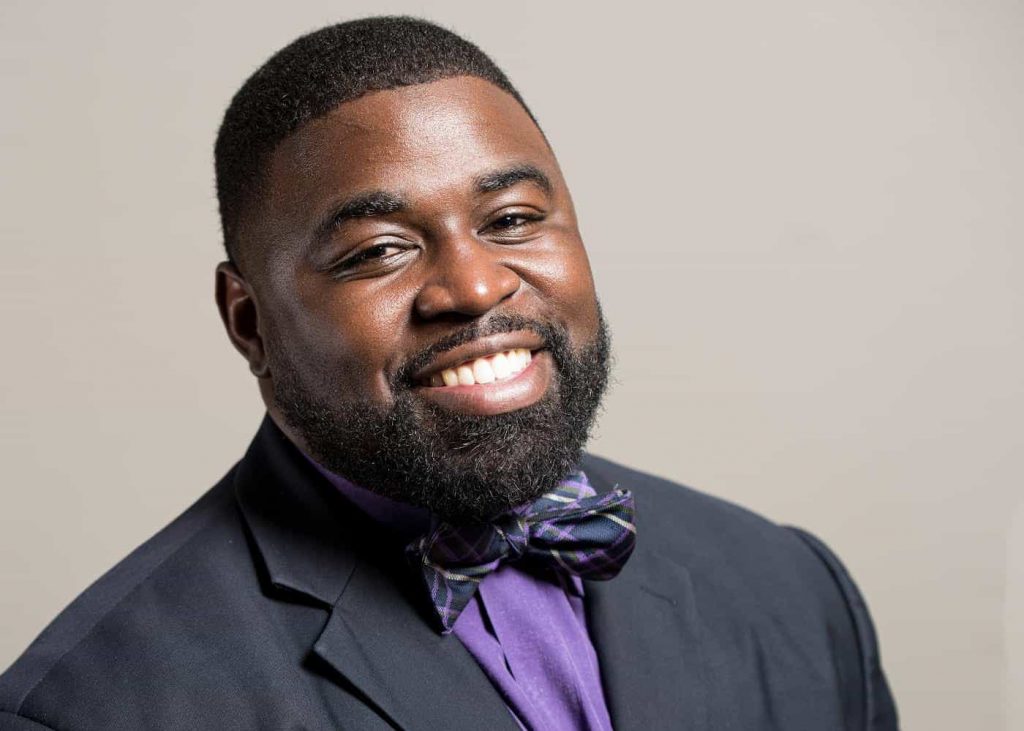
Former CHS principal joins Albemarle County Public Schools
After six years as principal, Eric Irizarry said a bittersweet good-bye to Charlottesville High School this summer—but he hasn’t traveled far. The new director of equity, family, and community relations for Albemarle County Public Schools, Irizarry will strive to build strong, meaningful relationships with students, families, and community partners, ultimately ensuring all of the division’s stakeholders have “a place at the table when we make important decisions,” he says.
By going directly into neighborhoods, Irizarry aims to foster connections with and receive input from families across the county, especially those “we have not heard from,” he says. ACPS recently hosted a back to school event at Southwood Mobile Home Park, where division staff met over 300 families, provided class schedule and bus information, and signed students up for library cards at Jefferson-Madison Regional Library.
“It’s those types of connections where we are actually going into the community, and actually listening, and then taking that information back to inform our decision-making process that has worked in the past,” says Irizarry. “If we work diligently, [we] can have that same success.”
As schools continue to recover from the coronavirus pandemic, Irizarry plans to put equity at the center of his work at ACPS, which serves families from over 90 different countries. He’ll be particularly “looking for areas where we’ve lost connection, meeting with those families and those stakeholders, and figuring out how we can repair what we have.”
Reflecting on his time at CHS, the former principal is most proud of the school’s persevering, supportive community.
“Navigating the high school through a very tumultuous six years, [starting] with the Unite the Right rally in 2017 … all the way to COVID,” was a challenge, he says. “[But] because of the relationships we built with students, we were able to close some of the academic gaps, and also increase our graduation rates. … [It was] one of the best experiences I’ve had in education.”
Irizarry earned a bachelor’s degree, master’s degree, and doctor of education from University of North Carolina at Wilmington. In 2002, he began his career as an educator at New Hanover County Schools, later teaching at Gregory School of Science, Mathematics and Technology, and serving as assistant principal at The Roger Bacon Academy’s Charter Day School. In 2012, he led the reopening of D.C. Virgo Preparatory Middle School, where he served as principal until 2016.—B.E.
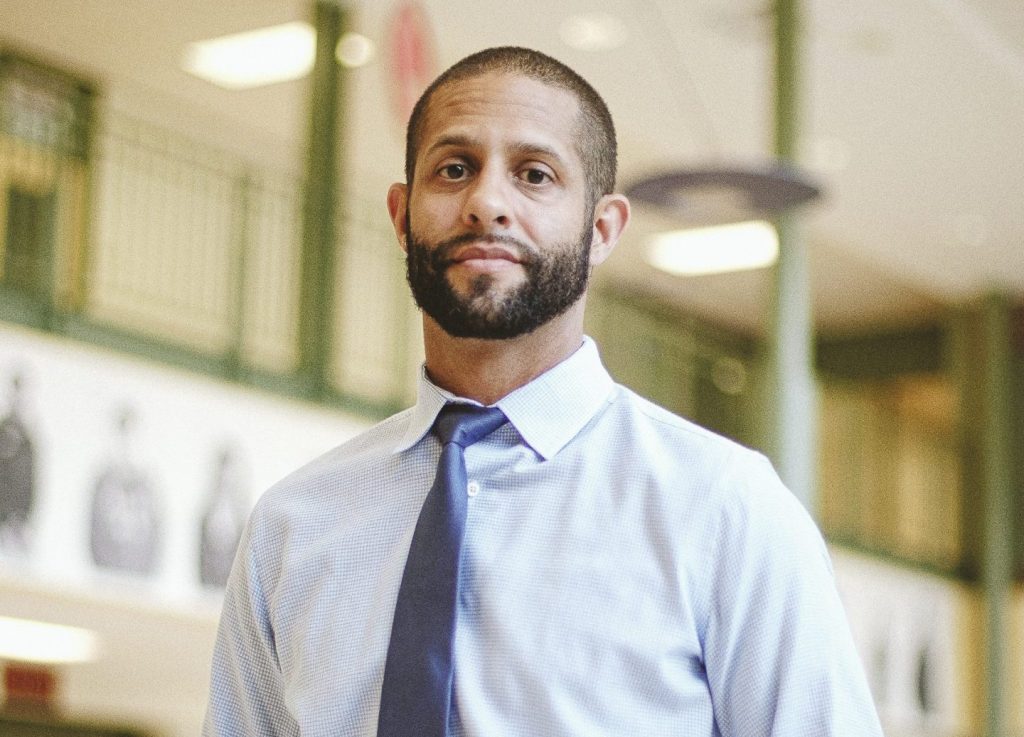
Chris Long’s Edzone makes sure students are ‘suited up’
Trust Chris Long to find a football analogy: You wouldn’t ask a football player to take the field without a helmet or shoulder pads. Yet when it’s time to go to school, says the former UVA and NFL star, “a lot of kids here in Charlottesville don’t have [their equipment]”—the basics like school supplies, socks, jackets, scrunchies, even toothbrushes.
Making sure kids are ready to play is the idea behind EdZone, the Chris Long Foundation’s educational equity initiative. Nancy Hopkins, the foundation’s executive director, described it this way: “We’re working to make sure kids can walk into the classroom confident, cared for, and ready to learn.”
Last May, EdZone and Charlottesville City Schools partnered with education nonprofit First Books to add 2,000 books to the Burnley-Moran Elementary School library. First Books gives teachers vouchers so they can select books geared to the needs of their children based on age, reading level, and representation.
This fall, EdZone is outfitting Essential Needs Closets for all six Charlottesville elementary schools. Each school will receive $25,000 to purchase the supplies too many children lack, from school materials to basic hygiene products like soap, shampoo, toothpaste and clothing items like socks, gloves, or coats.
The idea grew out of an event CCS held during the pandemic—a drive-through where families could pick up a bag of school supplies and other materials.
Each school’s Essential Needs Closet should be fully stocked by November 1, says Bianca Johnson, family engagement coordinator for CCS. Students are welcome to ask for items—but teachers, social workers, and counselors can also draw on those supplies when they see a child who needs something. “We’re all about empowerment,” says Johnson, “but sometimes the teachers see the need first-hand.”
More EdZone programs are in the works, says Hopkins—not only in Charlottesville, Long’s hometown, but also in Philadelphia and St. Louis, the cities where Long was an NFL player.
Individuals or businesses that want to help with donations (or in any other way) can go to the foundation’s website at chrislongfoundation.org or contact Bianca Johnson at familyengagement@charlottesvilleschools.org.—C.D.
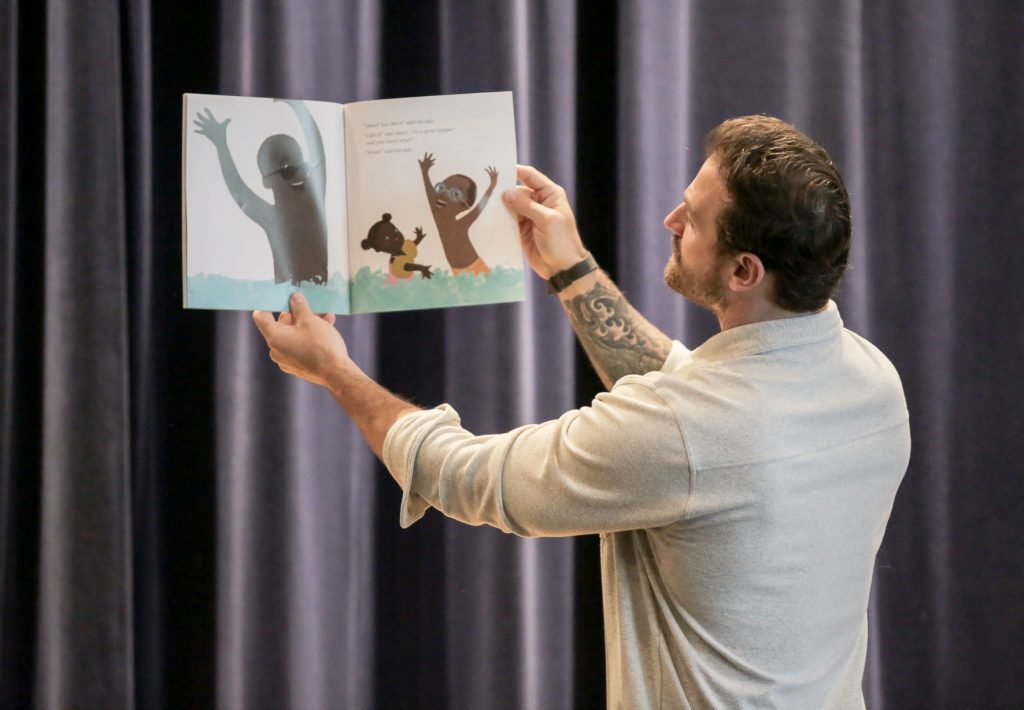
Equitable education is a core value of ACPS
As students prepare for their next level of education this year, they’re also—whether they know it or not—gearing up for a significant period of personal growth. School plays an important part in how students see themselves and their place in the world, and Albemarle County Public Schools is renewing its commitment to ensuring it fosters a culture of equity and inclusion, so everyone feels welcome and ready to learn.
This means telling a wider, truer story in history and social studies classes, and acknowledging contributions to the sciences that may have been overlooked due to various biases. And this year, with students returning to a more typical classroom environment, new accommodations and protections are in place for transgender learners. But ACPS’s anti-racism and gender-inclusive policies are more than just adjustments to the syllabus. They’re part of a wider “Learning for All” strategic plan that puts empathy, communication, adaptability, and inclusion at the forefront.
“When we think about looking at curriculum from a 360 standpoint,” says Ayanna Mitchell, director of equity education at ACPS, the goal is to “really uplift communities that are usually not uplifted around curriculum, even in math … [and] letting every student see themselves as a success in the future.”
Mitchell has been in education for nearly 30 years, and became an equity specialist a few years ago after a career as a K-12 teacher and administrator. Together with Eric Irizarry, director of equity, family, and community relations, they have used 2019’s anti-racism policy as a framework for expanding and redefining ACPS’s core values.
“Because of the work that we’ve done as a county around the anti-racism policy, a lot of what we are looking at with our transgender, gender-expansive policy just lies in anti-racist, anti-bias action steps,” says Mitchell.
According to the strategic plan, those steps include speaking out and challenging acts of racism, and maintaining “healthy cross-racial relationships.” Taking an active role in creating an inclusive learning environment is encouraged, and, Irizarry adds, ACPS even provides resources like an “equity decision-making tool” to make assessing unique situations in the classroom easier.
“It gives a framework and a process for leaders to take a look at a specific situation and make changes,” says Irizarry. “And it really causes them to think through, ‘How will this impact all students?’”—R.D.
